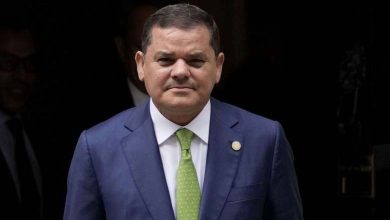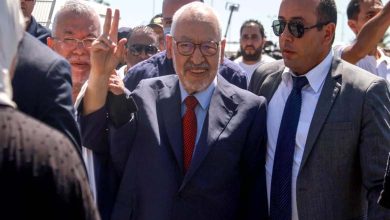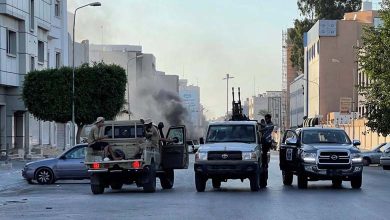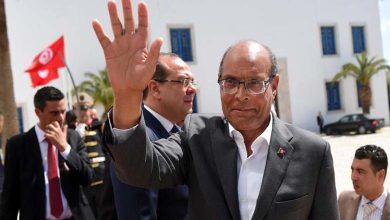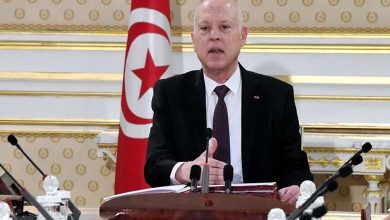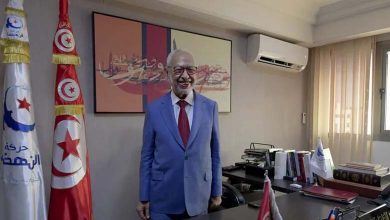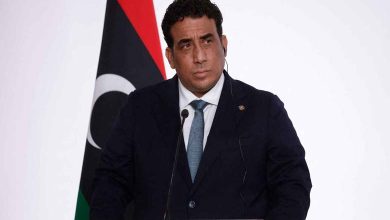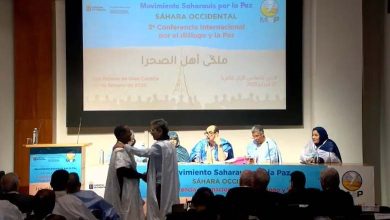Tunisia: How Saied corrected the course of the revolution and refuted the Brotherhood’s Project?

For the third consecutive year, Tunisians commemorate the revolution without interference from the Brotherhood, following the removal of the Ennahdha Movement from the circles of power and its exit from the parliamentary and political scene, as a result of President Kais Saied’s decisions.
On the sidelines of the Revolution Day celebrations yesterday, Azedine Chelbi, the governor of the Ben Arous province, stated that celebrating Revolution Day is a reaffirmation of a pivotal moment in Tunisia’s history when the people rose up for work, freedom, and national dignity.
Chelbi explained “July 25, 2021, is considered the second phase of correcting the course of the revolution, which was circumvented, attacked the authorities, and betrayed the Tunisian people in their rights and their revolution.”
He referred to the measures taken by President Kais Saied on July 25, 2021, to freeze the work of the parliament dominated by the Muslim Brotherhood organization and dissolve the government associated with it.
The governor of Ben Arous clarified that the Tunisian people’s uprising on the night of July 25, 2021, was a natural reaction to ten years of failure during the era of the Muslim Brotherhood, which led to the spread of corruption in all sectors and pushed the country into complete bankruptcy.
Chelbi considered that the Tunisian president adopted a new national political map, focusing on the foundations of national sovereignty. He emphasized that through this, the people have a say, and illusions are not sold to the people, who remain the source of authority.
He pointed out that the new policy of the new republic, announced under the title “The People Want,” is based on the idea that the people decide their destiny and outline their choices. This is to achieve the pillars of the revolution in Tunisia for national dignity and provide a decent life for Tunisians through economic and social growth, which are central priorities to achieve the goals of the Tunisian revolution.
The slogan “The People Want” resonates in Tunisia, and the fervor has spread to other peoples in the region. However, the Muslim Brotherhood, which jumped to power in Tunisia and other countries, is said to have thwarted the emerging democratic path, according to observers.
The Muslim Brotherhood has been classified as a terrorist organization in several Arab countries, including Egypt, which also overthrew the group’s rule in 2013. Calls in Tunisia to classify the Ennahdha movement, affiliated with the Muslim Brotherhood, as a terrorist organization continue.
The date of December 17, 2010, marks the first spark that ousted the regime of the late President Zine El Abidine Ben Ali after 23 years in power.
The revolution’s spark began after the self-immolation of the green grocer Mohamed Bouazizi in front of the governorate headquarters in Sidi Bouzid, protesting marginalization and poverty. This led to strong protests against the rule of Zine El Abidine Ben Ali, culminating in his overthrow on January 14, 2011, and Ben Ali and his family’s escape from the country after a massive demonstration on Habib Bourguiba Avenue.
The government that followed the revolution, led by the Ennahdha Movement, established January 14th of each year to celebrate Revolution Day. This continued until President Saied issued a presidential decree in September 2021, declaring December 17th of each year as the Revolution Day.


